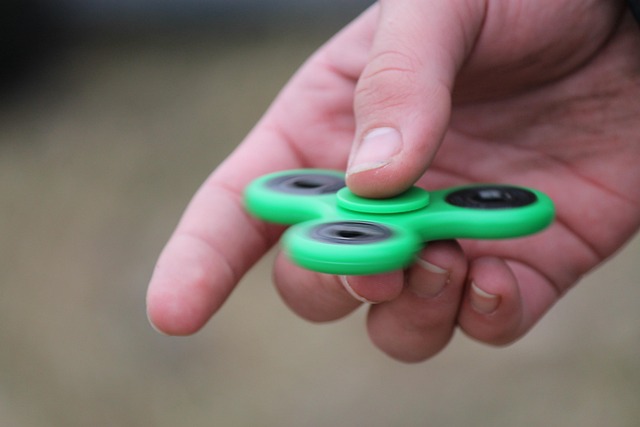Holistic stress management is a comprehensive approach that tackles stress at its root by integrating various therapeutic techniques, such as mindfulness meditation, yoga, and creative outlets. This method focuses on all aspects of an individual's life, including mental health, physical activity, diet, social connections, and spiritual well-being. By combining these elements, holistic stress management aims to enhance resilience, provide effective stress relief therapy, and enable individuals to cope with life's challenges gracefully. Key strategies include outdoor activities for nature's calming effects, a balanced diet rich in nutrients, regular exercise, social support networks, and relaxation techniques tailored to personal preferences. This personalized approach empowers people to navigate stress effectively and cultivate balance in their bustling lives.
Stress relief therapy is not just a trend—it’s a vital practice for maintaining overall well-being. In today’s fast-paced world, holistic stress management becomes increasingly essential. This comprehensive guide explores diverse approaches to help you navigate life’s challenges. From mindfulness and meditation to nature therapy, diet, exercise, social connections, creativity, and relaxation techniques, discover the interconnected elements that contribute to a balanced and stress-resilient lifestyle.
Understanding Holistic Stress Management: A Comprehensive Approach

Holistic stress management is a comprehensive approach that considers all aspects of an individual’s life, including mental, emotional, physical, and spiritual well-being. Unlike traditional methods that often focus on treating symptoms, this strategy aims to address the root causes of stress by integrating various therapeutic techniques and lifestyle changes. By adopting a holistic perspective, individuals can cultivate a deeper understanding of their stress triggers and develop personalized strategies for effective stress relief therapy.
This approach recognizes that stress is not solely a psychological issue but is deeply intertwined with daily routines, relationships, and environmental factors. It encourages the use of mind-body practices such as meditation, yoga, and deep breathing exercises to calm the nervous system and promote relaxation. Additionally, it may incorporate lifestyle modifications like regular physical activity, improved sleep habits, and mindful eating to enhance overall resilience and well-being. The ultimate goal is to enable individuals to navigate life’s challenges with grace and composure, fostering a sense of balance and tranquility.
The Role of Mindfulness and Meditation in Stress Relief Therapy

Mindfulness and meditation have emerged as powerful tools within holistic stress management, offering a natural and effective approach to stress relief therapy. These ancient practices focus on training the mind to be fully present in the moment, fostering a deeper sense of calm and clarity. By encouraging individuals to observe their thoughts and feelings without judgment, mindfulness helps to break the cycle of reactive thinking that often contributes to stress and anxiety.
During meditation, specific techniques such as focused breathing or body scans allow people to quiet their minds and cultivate a state of deep relaxation. Regular practice can lead to significant reductions in cortisol levels—often referred to as the stress hormone—and may improve overall emotional well-being. Many therapeutic approaches now integrate mindfulness meditation as a core strategy for managing stress, providing individuals with practical tools to navigate challenging situations and promote long-term mental health.
Exploring Nature Therapy: Connecting with the Outdoors for Calmness

Connecting with nature has long been recognized as a powerful tool for managing stress and promoting calmness. Nature therapy, also known as ecotherapy, involves engaging in outdoor activities that foster a deeper connection with the natural world. This can range from a leisurely walk in the park to more structured practices like forest bathing or gardening. The benefits are multifaceted: research shows that spending time outdoors reduces levels of cortisol, the stress hormone, and increases serotonin, which is linked to improved mood and well-being.
The calming effects of nature therapy extend beyond biological responses. Being surrounded by natural landscapes offers a break from the constant stimuli and demands of modern life. It encourages mindfulness and presence in the moment, allowing individuals to detach from stressors and gain new perspectives. Whether it’s the soothing sound of waves crashing on shore or the serenity of a quiet forest trail, nature provides a sanctuary where one can reconnect with themselves and find respite from daily pressures, making it an effective stress relief therapy.
Diet and Nutrition: Fueling Your Body for Stress Resistance

In the realm of holistic stress management, diet and nutrition play a pivotal role in building your body’s resistance to stress. The food you consume significantly impacts your overall well-being and ability to cope with stressful situations. Incorporating nutrient-rich foods into your daily meals can serve as an effective stress relief therapy. A balanced diet, rich in fruits, vegetables, whole grains, lean proteins, and healthy fats, provides the necessary vitamins, minerals, and antioxidants that support optimal bodily function during times of stress.
Antioxidant-laden foods, for instance, help combat the oxidative damage caused by chronic stress. Omega-3 fatty acids, found in fish like salmon and walnuts, are known to reduce inflammation and promote a sense of calm. Additionally, staying hydrated is crucial as proper water intake aids in regulating hormones related to stress. By prioritizing diet and nutrition, you’re not just fueling your body but also empowering it to navigate stressful situations more effectively.
Physical Exercise as a Powerful Stress Management Tool

Physical exercise is a powerful tool in the arsenal of any stress management strategy. It’s not just about getting fit; regular physical activity has been scientifically proven to reduce the impact of stressful situations on both the mind and body. When we exercise, our bodies release endorphins, often referred to as ‘feel-good’ hormones, which act as a natural form of pain relief and can induce a sense of calm and happiness. This reaction is often described as the ‘runner’s high,’ but it’s accessible to everyone, regardless of their fitness level.
Incorporating physical exercise into your routine can provide an effective stress relief therapy. Whether it’s a brisk walk in nature, a yoga session to improve flexibility and mindfulness, or a full-body workout at the gym, these activities help lower cortisol levels—often known as the ‘stress hormone.’ By engaging in regular physical activity, you can enhance your ability to cope with stressful events and promote overall well-being. It’s a simple yet powerful way to manage stress and improve your quality of life.
Social Connections and Community Support Systems

Social connections play a vital role in holistic stress management, offering a powerful tool for combating the effects of stress and promoting overall well-being. Building and maintaining a strong support system within one’s community can significantly enhance stress relief therapy. Whether it’s through joining social clubs, participating in group activities, or simply staying connected with family and friends, these interactions provide a sense of belonging and emotional support, which are essential for managing stress effectively.
Community support systems act as a safety net, offering practical assistance and a listening ear when needed. They encourage open communication, fostering an environment where individuals can share their experiences, seek advice, and offer support to others facing similar challenges. This sense of camaraderie and mutual aid can help reduce feelings of isolation and provide alternative coping strategies for managing stress relief therapy, ultimately contributing to improved mental health and resilience.
Creative Outlets: Unleashing Stress Through Art and Expression

Creative outlets offer a powerful way to alleviate stress and promote holistic well-being, serving as an effective form of stress relief therapy. Engaging in artistic expression allows individuals to tap into their emotions and thoughts, providing a sense of release and transcendence from everyday pressures. Whether it’s painting, writing, dancing, or playing music, these activities offer a unique channel for self-expression, helping to clear the mind and reduce tension.
Art and creative pursuits enable people to connect with their inner selves, fostering a sense of calm and mindfulness. The process of creating can be deeply therapeutic, allowing individuals to explore and understand their feelings in a different, non-verbal way. This form of stress management encourages self-care and provides an outlet for emotions that may be difficult to articulate verbally, making it a valuable addition to any holistic wellness routine.
Incorporating Relaxation Techniques for Optimal Stress Relief

Incorporating relaxation techniques is a fundamental aspect of holistic stress management, offering individuals an array of tools to achieve optimal stress relief. These techniques, such as mindfulness meditation, deep breathing exercises, and progressive muscle relaxation, have been scientifically proven to reduce stress hormones and lower blood pressure. By dedicating just a few minutes each day to these practices, folks can experience a profound sense of calm, improving their overall mental well-being.
Stress relief therapy isn’t one-size-fits-all; it’s about discovering what works best for you. Whether it’s the soothing hum of a chanting session, the gentle stretching of yoga poses, or simply focusing on your breath, these holistic methods empower individuals to take control of their stress levels and cultivate a deeper connection with their inner selves in today’s hustle and bustle world.
